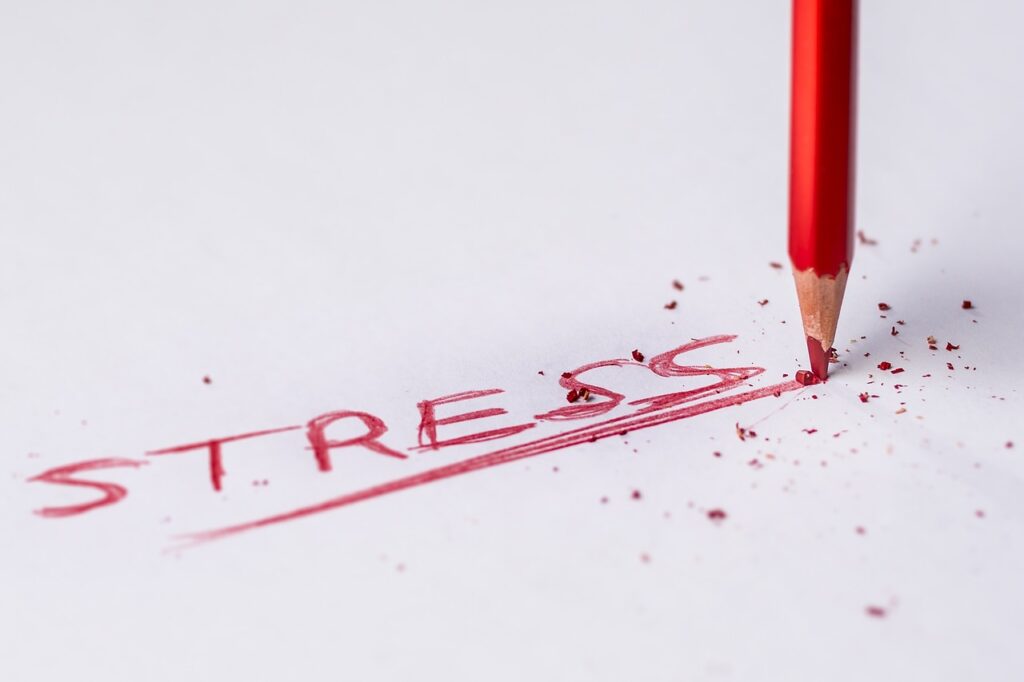Contact Us (720) 964-1335 or (901) 675-6125

Stress and emotional eating are common challenges, especially for women over 40 who are navigating the complexities of weight loss, often with the aid of GLP-1 medications. While these medications can be highly effective, they don’t address the underlying emotional triggers that can lead to overeating. Understanding and managing stress is crucial to maintaining long-term success on your weight loss journey.
Understanding Emotional Eating
Emotional eating occurs when you use food as a way to cope with your emotions rather than to satisfy physical hunger. This can happen when you’re feeling stressed, anxious, lonely, or even bored. While the occasional indulgence is normal, chronic emotional eating can sabotage your weight loss efforts.
Signs of Emotional Eating:
- Eating When Not Physically Hungry: You find yourself reaching for snacks even when you’re not hungry.
- Craving Specific Comfort Foods: You crave specific foods, usually those high in sugar, fat, or carbs, to deal with your emotions.
- Mindless Eating: You eat without really paying attention, often while watching TV or working.
- Guilt After Eating: You feel guilty or ashamed after eating, especially if you weren’t physically hungry.
Understanding these patterns is the first step in managing them.
The Connection Between Stress and Emotional Eating
Stress triggers a cascade of hormones in your body, including cortisol, which increases your appetite and cravings for high-calorie foods. This “stress eating” is a natural response, but it can become problematic when it leads to unhealthy eating habits and weight gain.
For women over 40, who may already be dealing with hormonal changes, stress can exacerbate the tendency to overeat. The combination of stress and emotional eating can derail even the most determined efforts to lose weight, even when using GLP-1 medications.
Strategies to Manage Stress and Emotional Eating
- Identify Your Triggers
- Keep a journal to track what you eat and note how you’re feeling at the time. Are you eating because you’re hungry, or are you trying to cope with stress? Recognizing your triggers is the first step in breaking the cycle of emotional eating.
- Find Healthy Alternatives to Eating
- Instead of reaching for food, try other activities that can help relieve stress and lift your mood. This could include going for a walk, practicing yoga, or engaging in a hobby you enjoy. For instance, National Yoga Month in September is a great reminder to incorporate this calming practice into your routine.
- Practice Mindful Eating
- Mindful eating involves paying full attention to the experience of eating and drinking, both inside and outside the body. This practice helps you tune into your body’s hunger and fullness cues, making it easier to avoid emotional eating. Slow down, savor each bite, and focus on the flavors, textures, and aromas of your food.
- Build a Support System
- Surround yourself with a supportive network of friends, family, or a wellness coach. Talking about your stressors and having someone to turn to can reduce the urge to turn to food for comfort.
- Incorporate Relaxation Techniques
- Stress management is key to reducing emotional eating. Techniques such as deep breathing exercises, meditation, or progressive muscle relaxation can help calm your mind and reduce stress. These techniques can be especially effective when practiced regularly.
- Seek Professional Help
- If you find that stress and emotional eating are severely impacting your weight loss journey, consider seeking professional help. A therapist or counselor can help you address the emotional issues underlying your eating habits.
How GLP-1 Medications Fit In
GLP-1 medications, such as semaglutide, work by slowing stomach emptying and increasing feelings of fullness, which can naturally reduce the urge to overeat. However, they don’t address the emotional reasons why you might be eating. This is why it’s important to combine medication with strategies that help manage stress and emotional eating.
At Ample Health and Wellness, we understand the unique challenges faced by women over 40 on their weight loss journey. Our holistic approach includes not only diet and exercise coaching but also wellness strategies to manage stress and emotional eating. We believe that true wellness encompasses both the body and the mind.
Wellness Segment: World Mental Health Day
As we approach World Mental Health Day on October 10th, it’s a perfect time to focus on your mental well-being. Emotional health is just as important as physical health, and addressing stress and emotional eating is crucial for sustainable weight loss. At Ample Health and Wellness, we’re here to support you every step of the way, offering tools and strategies to help you thrive on your GLP-1 journey.
Join Our Newsletter Sign up for our newsletter to receive more tips and insights on managing stress, emotional eating, and maintaining a healthy weight. Let’s work together to achieve your health and wellness goals.

